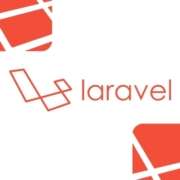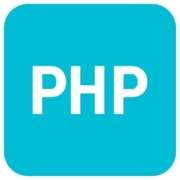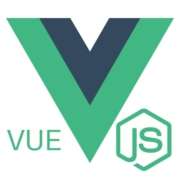Should you Learn PHP and Laravel in 2025?
PHP has been a cornerstone of web development for decades, and Laravel, a popular PHP framework, provides a robust and efficient platform for building modern web applications. Despite the emergence of new programming languages and frameworks, PHP and Laravel continue to demonstrate their relevance in the ever-evolving technology landscape. This article delves into the future of PHP and Laravel, examining their strengths, recent developments, and industry usage to help developers determine if these technologies are worth learning in 2025.
The Future of PHP
PHP has consistently adapted to the changing needs of web development, maintaining its strong position in the industry. In 2024, PHP still powered a remarkable 76.5% of all websites with a known server-side programming language . This enduring popularity is a testament to PHP’s resilience and ability to remain relevant despite the emergence of newer languages. Several factors contribute to PHP’s continued success:
- Continuous Evolution: PHP has undergone significant modernization, particularly with the release of PHP 8 and beyond. These versions introduce performance-enhancing features like the Just-In-Time (JIT) compiler, improved type handling, and enhanced error handling, making PHP more competitive with other high-performance languages .
- Strong Community Support: A large and active community of developers contributes to PHP’s growth and provides valuable support to those learning the language. This vibrant community ensures that PHP remains up-to-date with the latest trends and best practices in web development . Furthermore, the PHP Foundation, established in 2021, plays a crucial role in supporting the language’s development and ensuring its continued growth .
- Versatility: PHP is a versatile language that can be used for a wide range of web development projects, from simple scripts to complex applications. It can handle various tasks, including data processing, form validation, file uploading, session management, and more .
- Ease of Learning: PHP is known for its relatively easy learning curve, making it accessible to beginners. Its syntax is clear and concise, allowing new programmers to grasp the fundamentals quickly .
- Integration with Modern Technologies: PHP is actively adapting to integrate with modern web development technologies such as cloud computing, blockchain, and AI/ML. This ensures that PHP remains relevant in the evolving technology landscape .
- Market Share: PHP holds a significant market share in the programming language landscape. In 2024, it owned around 79% of the market, demonstrating its widespread adoption and continued relevance .
- Security Focus: PHP 8 introduces several key updates that enhance the security of PHP applications. These include improved password hashing functions, secure string comparison, and stricter type checks, making it easier to build secure and reliable web applications .
New Features in PHP 8 and Beyond
PHP 8 and subsequent versions have introduced a range of new features and improvements that enhance the language’s performance, security, and developer experience. Some notable features include:
- Just-In-Time (JIT) Compiler: The JIT compiler significantly improves the performance of PHP applications by compiling code during runtime. This leads to faster execution speeds and improved efficiency, particularly for computationally intensive tasks .
- Named Arguments: Named arguments allow developers to pass arguments to functions by name, rather than relying on their position. This improves code readability, reduces errors, and makes it easier to understand the purpose of each argument .
- Attributes: Attributes provide a way to add metadata to code, enabling developers to write more expressive and self-documenting code. This can be useful for adding information about classes, methods, or variables that can be used by tools or frameworks .
- Union Types: Union types allow developers to specify that a variable can hold values of different types. This increases code flexibility and allows for more expressive type hints, improving code maintainability and reducing errors .
- Match Expression: The match expression provides a concise way to perform pattern matching, simplifying code and reducing errors. It offers a more readable and efficient alternative to traditional switch statements .
- Nullsafe Operator: The nullsafe operator allows developers to safely access properties and methods of potentially null objects, preventing null pointer exceptions. This helps to write more robust code and avoid common runtime errors .
- Improved Type System and Error Handling: PHP 8 has improved type checking and error handling, making it easier to debug code and prevent errors. Stricter type checks and more informative error messages help developers identify and resolve issues more efficiently .
- Performance and Memory Enhancements in PHP 8.x: Beyond individual features, PHP 8.x brings numerous under-the-hood improvements, including faster execution times for key operations, reduced memory consumption, and enhanced OPcache performance for preloading scripts. These enhancements contribute to better overall performance and scalability, especially for high-traffic systems .
These new features and improvements contribute to making PHP a more robust, efficient, and developer-friendly language.
PHP Usage in the Industry
PHP continues to be widely used in the industry, powering a vast number of websites and applications across various sectors. Some notable examples include:
- Content Management Systems (CMS): Popular CMS platforms like WordPress, Drupal, and Joomla are built with PHP. These platforms power a significant portion of websites worldwide, making PHP an essential technology for content management and website development .
- E-commerce Platforms: E-commerce giants like Magento and WooCommerce rely on PHP to handle their complex online stores and transactions. PHP’s ability to handle data processing, database interactions, and secure transactions makes it a suitable choice for building robust e-commerce solutions .
- Social Media Platforms: Facebook, one of the largest social media platforms, was initially built with PHP and continues to use it for various components of its infrastructure. This demonstrates PHP’s scalability and ability to handle large-scale applications with millions of users .
- Web Applications: Many web applications, ranging from small business websites to large enterprise systems, are built with PHP. Its versatility and scalability make it a suitable choice for a wide range of web development projects .
- Beyond Web Development: While primarily known for web development, PHP is also used in other niches. It finds applications in utilities (27%), data storage (24%), frameworks (15%), and software development (14%) . This demonstrates PHP’s versatility beyond its primary domain.
- Command-line Scripting: PHP can be used for command-line scripting through tools like Composer and PHP Unit. Composer, a dependency manager for PHP, is widely used for managing project dependencies, while PHP Unit provides a framework for unit testing PHP code .
- Developer Tools and Resources: PHP developers have access to a wealth of development tools and resources, including IDEs, debuggers, and testing frameworks. These tools enhance the development process, improve code quality, and contribute to efficient and reliable PHP development .
The continued use of PHP in these diverse sectors demonstrates its relevance and importance in the industry.
PHP’s adaptability and continuous evolution, coupled with its strong community support and wide range of applications, make it a technology that is likely to remain relevant in the years to come.
The Future of Laravel
Laravel, a leading PHP framework, has gained immense popularity among developers due to its elegant syntax, developer-friendly features, and robust ecosystem. The future of Laravel looks promising, with several trends shaping its development:
- Microservices Architecture: Laravel is increasingly being used to build applications based on microservices architecture. This approach allows developers to break down applications into smaller, independent services that communicate with each other, enabling faster development, improved resilience, and easier scalability .
- Serverless Architecture: Laravel is aligning with serverless architecture, simplifying deployment and maintenance complexities for developers. This trend allows developers to focus on core functionalities while serverless platforms handle resource scaling and infrastructure management .
- Real-time Applications: Laravel is well-suited for building real-time applications, leveraging technologies like WebSockets and broadcasting to provide interactive and engaging user experiences. This allows for features like live chat, real-time notifications, and collaborative tools .
- Cloud-Native Applications: Laravel is adapting to the cloud-native environment, with tools like Laravel Vapor facilitating the deployment and management of applications on cloud platforms. This enables developers to leverage the scalability and flexibility of cloud infrastructure .
- Headless CMS: Laravel can be used as a backend for headless CMS systems, providing a flexible and powerful API for managing content and delivering it to various front-end platforms. This allows for content to be reused across different channels and devices .
- Elegant Syntax: Laravel’s elegant and expressive syntax is a key factor in its popularity among developers. It provides a clean and readable codebase, making it easier to write, understand, and maintain Laravel applications .
These trends indicate that Laravel is evolving to meet the demands of modern web development and will continue to be a relevant and powerful framework for building web applications.
Laravel Usage in the Industry
Laravel has been adopted by a wide range of companies and organizations, including:
- Large Enterprises: Companies like Pfizer, Liberty Mutual Insurance, BBC, and About You use Laravel to build their websites and applications. This demonstrates Laravel’s ability to handle the complex requirements of large-scale enterprise systems .
- Startups: A significant portion of startups, around 40%, operating in tech and digital fields opt for Laravel. They choose Laravel because of its modern tools, swift development process, and ability to build scalable applications .
- Web Development Agencies: Numerous web development agencies use Laravel to build custom web applications for their clients. Laravel’s flexibility, ease of use, and extensive features make it a popular choice for agencies that need to deliver high-quality web solutions .
- Revenue: Despite being open-source, Laravel generates an estimated annual revenue of $15 to $25 million. This highlights the framework’s financial stability and potential for continued growth .
- Security Focus: Laravel prioritizes security and provides built-in features to protect against common web vulnerabilities. It mitigates risks like Cross-site Scripting (XSS), SQL injection, and Cross-site Request Forgery (CSRF), ensuring that applications built with Laravel are secure and reliable .
The widespread adoption of Laravel across different sectors highlights its versatility and effectiveness in building high-quality web applications.
Should You Learn PHP and Laravel in 2025?
Based on the information presented, learning PHP and Laravel in 2025 can be a valuable investment for developers. Here’s why:
- High Demand: PHP developers are in high demand, with a large number of websites and applications relying on PHP. Laravel developers are also sought after due to the framework’s popularity and effectiveness in building modern web applications . This translates to ample job opportunities and competitive salaries for those skilled in PHP and Laravel.
- Career Opportunities: Learning PHP and Laravel can open up various career opportunities in web development. You can pursue roles such as backend developer, full-stack developer, web application developer, or even specialize in Laravel development within a company or agency.
- Future-Proof Skills: PHP and Laravel are actively evolving to adapt to modern web development trends, ensuring that the skills you acquire will remain relevant in the future. With the ongoing development of new features, performance enhancements, and security updates, PHP and Laravel are well-positioned to remain key players in the web development landscape.
- Large Community and Resources: The strong community support and abundance of learning resources available for PHP and Laravel make it easier to learn and master these technologies. Online tutorials, documentation, forums, and communities provide ample support for both beginners and experienced developers.
However, it’s essential to consider your individual goals and interests when making a decision. If your primary focus is on areas like mobile app development or data science, other languages might be more suitable.
Conclusion
PHP and Laravel continue to be relevant and valuable technologies in the web development landscape. PHP’s continuous evolution, strong community support, and versatility ensure its longevity. Laravel, with its elegant syntax, developer-friendly features, and adaptability to modern trends, remains a powerful framework for building web applications. If you’re looking to pursue a career in web development or enhance your existing skillset, learning PHP and Laravel in 2025 can be a wise investment. The demand for PHP and Laravel developers is high, and the technologies are constantly evolving to meet the needs of modern web development. By learning PHP and Laravel, you’ll gain valuable skills that can open up a wide range of career opportunities and position you for success in the dynamic world of web development.




